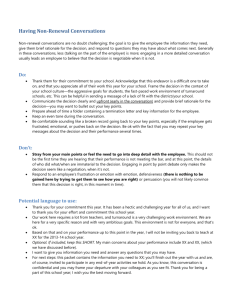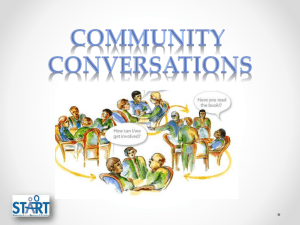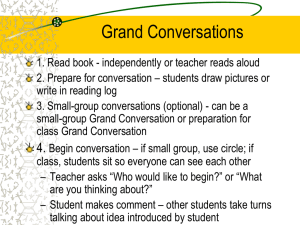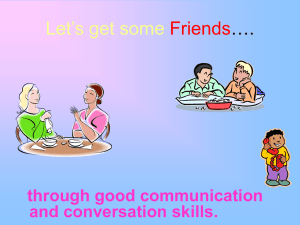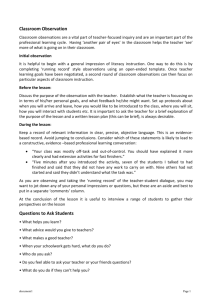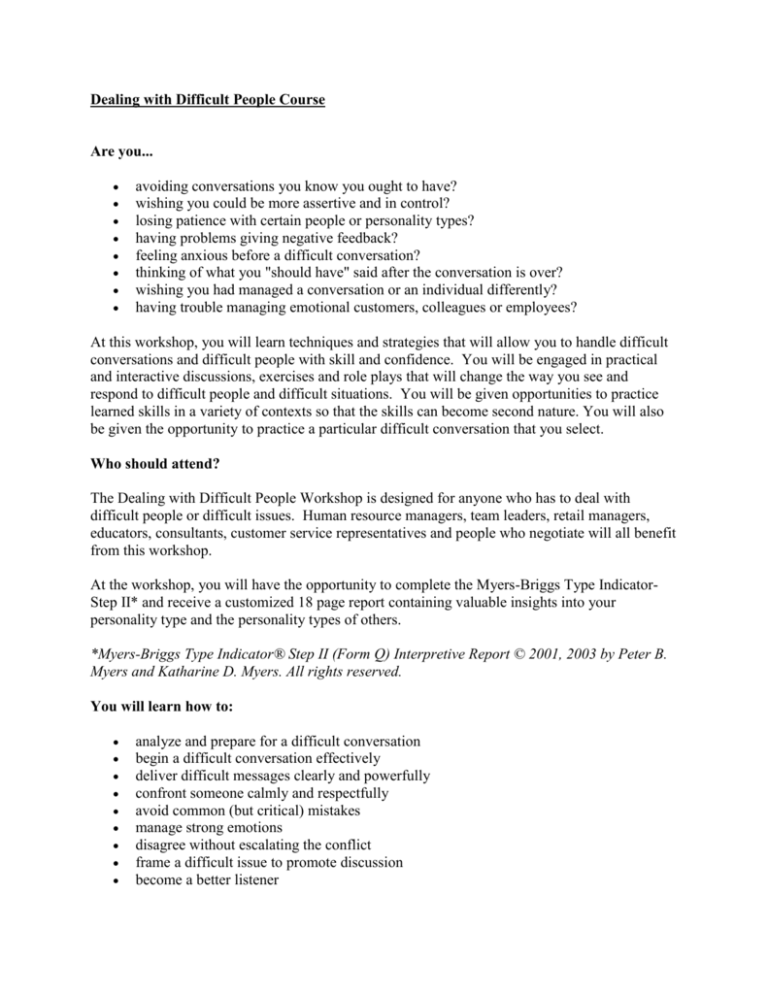
Dealing with Difficult People Course
Are you...
avoiding conversations you know you ought to have?
wishing you could be more assertive and in control?
losing patience with certain people or personality types?
having problems giving negative feedback?
feeling anxious before a difficult conversation?
thinking of what you "should have" said after the conversation is over?
wishing you had managed a conversation or an individual differently?
having trouble managing emotional customers, colleagues or employees?
At this workshop, you will learn techniques and strategies that will allow you to handle difficult
conversations and difficult people with skill and confidence. You will be engaged in practical
and interactive discussions, exercises and role plays that will change the way you see and
respond to difficult people and difficult situations. You will be given opportunities to practice
learned skills in a variety of contexts so that the skills can become second nature. You will also
be given the opportunity to practice a particular difficult conversation that you select.
Who should attend?
The Dealing with Difficult People Workshop is designed for anyone who has to deal with
difficult people or difficult issues. Human resource managers, team leaders, retail managers,
educators, consultants, customer service representatives and people who negotiate will all benefit
from this workshop.
At the workshop, you will have the opportunity to complete the Myers-Briggs Type IndicatorStep II* and receive a customized 18 page report containing valuable insights into your
personality type and the personality types of others.
*Myers-Briggs Type Indicator® Step II (Form Q) Interpretive Report © 2001, 2003 by Peter B.
Myers and Katharine D. Myers. All rights reserved.
You will learn how to:
analyze and prepare for a difficult conversation
begin a difficult conversation effectively
deliver difficult messages clearly and powerfully
confront someone calmly and respectfully
avoid common (but critical) mistakes
manage strong emotions
disagree without escalating the conflict
frame a difficult issue to promote discussion
become a better listener
overcome the fears that lead you to avoid conversations
discuss difficult issues that you did not see coming
know when and how to end a difficult conversation
After completing the workshop, you will be able to turn difficult conversations into productive
exchanges.
You will be able to:
discuss difficult issues with greater confidence
interact more effectively with people you find difficult
handle people who are upset, angry, complaining or confused
manage your own responses better
encourage customers to feel like partners
spot personality differences
manage the emotions that arise from difficult conversations
differentiate between peoples' positions and true interests
resolve conflict more effectively
promote joint problem-solving around a difficult issue
Below you will find a syllabus that describes the structure of the workshop and poses some of
questions that will be answered during the workshop.
Syllabus:
DAY 1
The case studies and exercises on day 1 will address the following questions:
What makes a conversation difficult?
How do you start a difficult conversation to make it effective?
How do you confront unacceptable behaviour?
How do you identify and deal with difficult people?
How do you identify different personality types?
How do different personality types contribute to problems in the workplace and at home?
At the end of the day you will receive your customized Myers-Briggs Type Indicator (MBTI)Step II report. The MBTI is designed to provide valuable information about personality types
and with over 2 million people completing the Indicator each year, it is the most wellresearched and trusted tool in the world for understanding why and how people are different.
According to the MBTI, all types are equally desirable and valuable. While all types are equally
valuable, the differences between types can lead to conflict and frustration. The MBTI is one
technique for helping each of us gain insight into our own personalities. This can provide us
with helpful information about when we are at our best and what doesn't work so well for
us. The MBTI also provides practical information on communication styles, decision-making
styles, and how different people deal with change and conflict. These insights can assist us to
understand, motivate, and interact most effectively with all the different personality types.
DAY 2
The case studies and exercises on day 2 will address the following questions:
What triggers you and others?
How do you identify and avoid common mistakes?
How do you deal with and manage emotions?
How do you get to the root of a problem?
How can you disagree with someone without escalating the conflict?
How do you prepare for a difficult conversation?
DAY 3
The case studies and exercises on day 3 will address the following questions:
How do you deal with difficult conversations in the workplace?
How do you deal with difficult conversations at home?
How might you manage your own responses better to make the conversation less difficult
for you?
How do you know when to end a difficult conversation?
What is the best way to end a difficult conversation?
How do you conquer fears around a difficult conversation?
There will also be an opportunity on the final day to practice a specific skill or conversation that
you have identified for yourself during the workshop. The facilitators will be available to answer
any questions that may arise for you in that specific situation.


